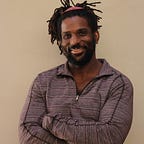Ya’aqov’s Last Words
Maybe telling someone that you love them is not the most important thing you need to say before it is too late.
We have all heard the advice, “Don’t wait to tell people you love them because tomorrow might be too late.” In today’s chapter, Genesis 49, Ya’aqov is on his death bed and has his last chance to speak to his sons.
Imagine sitting at your father’s deathbed and being told:
“(T)hou shalt not excel.” — Reuven, 49:4
or
“(L)et my soul not come into (your) council; to (your) assembly let my honor not be united” — Shim’on and Levi, 49:6.
And the text clarifies at the end that these are blessings. “this is that which their father spoke to them, and blessed them; every one according to his blessing he blessed them.” — 49:28.
Endless praise and positive wishes are not the only forms of blessing. Nice words do not always show love, and sometimes having difficult conversations is a better way to show love.
You can bless someone by pointing out their faults and failures. Warning someone of the negative consequences you see their actions leading towards is a sign of love, and it gives them the chance to change their ways.
It is impossible to change your path until you realize that it is the wrong path. The first step of teshuva is acceptance, accepting that you are on the wrong path. Having someone you love tell you the error of your ways can help you accept that you are going in the wrong direction and need to change your ways.
Telling people you love them is important, but Judaism teaches us that helping people do teshuva, returning to the correct path, is a form of love. As Rabbi Lord Jonathan Sacks z”l put it, “Teshuva is the basic principle of Judaism.”
